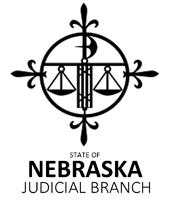Law, College of

State of Nebraska Judicial Branch
Date of this Version
2007
Document Type
Article
Abstract
The law of probation revocation developed rapidly over the eighteen years preceding this article’s 1989 appearance. While its development has slowed substantially since then, it continues to evolve. The overall field of Nebraska probation revocation remains essentially unchanged from the way it was in 1989 when this article first appeared. The case law has neither burgeoned dramatically nor altered the scenery in major ways, although, it has added a few refinements. But important procedural and substantive wrinkles have appeared through 2003 statutory amendments to the steps probation officers must take in responding to probationers’ violations of the conditions of their probation sentences. Less important changes appear in the county attorneys’ and trial courts’ responses.
Probation remains a sentence under which a person found guilty of a crime or adjudicated delinquent or in need of special supervision is released subject to court imposed conditions and subject to supervision. A probation sentence remains a final order for purposes of appeal. However, upon proof of a violation of probation, the sentencing court may revoke the "final" probation sentence and impose a new sentence within the statutory limits or may decline to revoke probation and modify the terms of the probation sentence as originally imposed. Probation revocation proceedings occupy a procedural class of their own with elements of both criminal and civil procedure. Even though probation revocation cannot occur without a precedent criminal proceeding and even though a new sentencing proceeding following a probation revocation is considered a critical stage of the precedent criminal case, the probation revocation proceeding itself is not considered to be a stage of the precedent criminal case.
The basic rules governing probation revocations in Nebraska were developed by the Nebraska Legislature, the United States Supreme Court, the United States Eighth Circuit Court of Appeals, and the Nebraska Supreme Court, each body acting independently, as is the nature of our system, and sometimes adopting inconsistent approaches. The roles played by the United States Supreme Court and the Eighth Circuit Court of Appeals have faded substantially since 1989. But the Nebraska Court of Appeals, which came into existence only in 1992, now plays a major role. In 1989 there was no other single reference work for discovering the esoteric rules relating to probation revocation in the state courts of Nebraska nor is there one in 2007. Hopefully, this article filled that void over the last eighteen years and will do so again for a reasonable length of time.
Probation revocation is a narrow, specialized type of proceeding. Defense counsel are frequently thrust into probation revocation defense by court appointment. The area does not generate a great deal of fee activity. The income incentive for most lawyers to devote the necessary time to finding and synthesizing the law of probation revocation is not high. Yet, most alleged probation violators face imprisonment on revocation. The stakes are high for them. Actual probation violators are people who generally have put themselves on the fast track to correctional facilities. Once there, they have nothing to lose by filing liability claims against their former defense counsel.
Following the constitutional Morrissey-Gagnon rules and Nebraska statutes is not optional and the failure to do so can affect negatively both any revocation proceedings and later criminal proceedings as well, as State v. Pawling demonstrates. The purpose of this article is to provide to the bench, bar and probation officers a probation revocation primer with the dual goals of improving the quality of probation revocation representation (on both sides), as well as the quality of judicial probation revocation procedures and decision making, and offering a convenient basic reference on the law of probation revocation in Nebraska courts. This revised article will discuss the statutory framework for probation revocation actions as it existed in 1989 and as it exists now, the pre-1971 Nebraska case law, the revolution in probation revocation law resulting from the United States Supreme Court's decision in Gagnon v. Scarpelli, and the post- Gagnon decisions of the United States Supreme Court, the Eighth Circuit Court of Appeals, the Nebraska Supreme Court and the Nebraska Court of Appeals. This article examines developments relating to each component of the probation revocation process.
Included in
Courts Commons, Judges Commons, Jurisprudence Commons, State and Local Government Law Commons


Comments
Copyright (c) 2007, Alan G. Gless.
An earlier (1989) version of this essay appeared in Nebraska Law Review, volume 68, and can be seen here: http://digitalcommons.unl.edu/nlr/vol68/iss2/4/